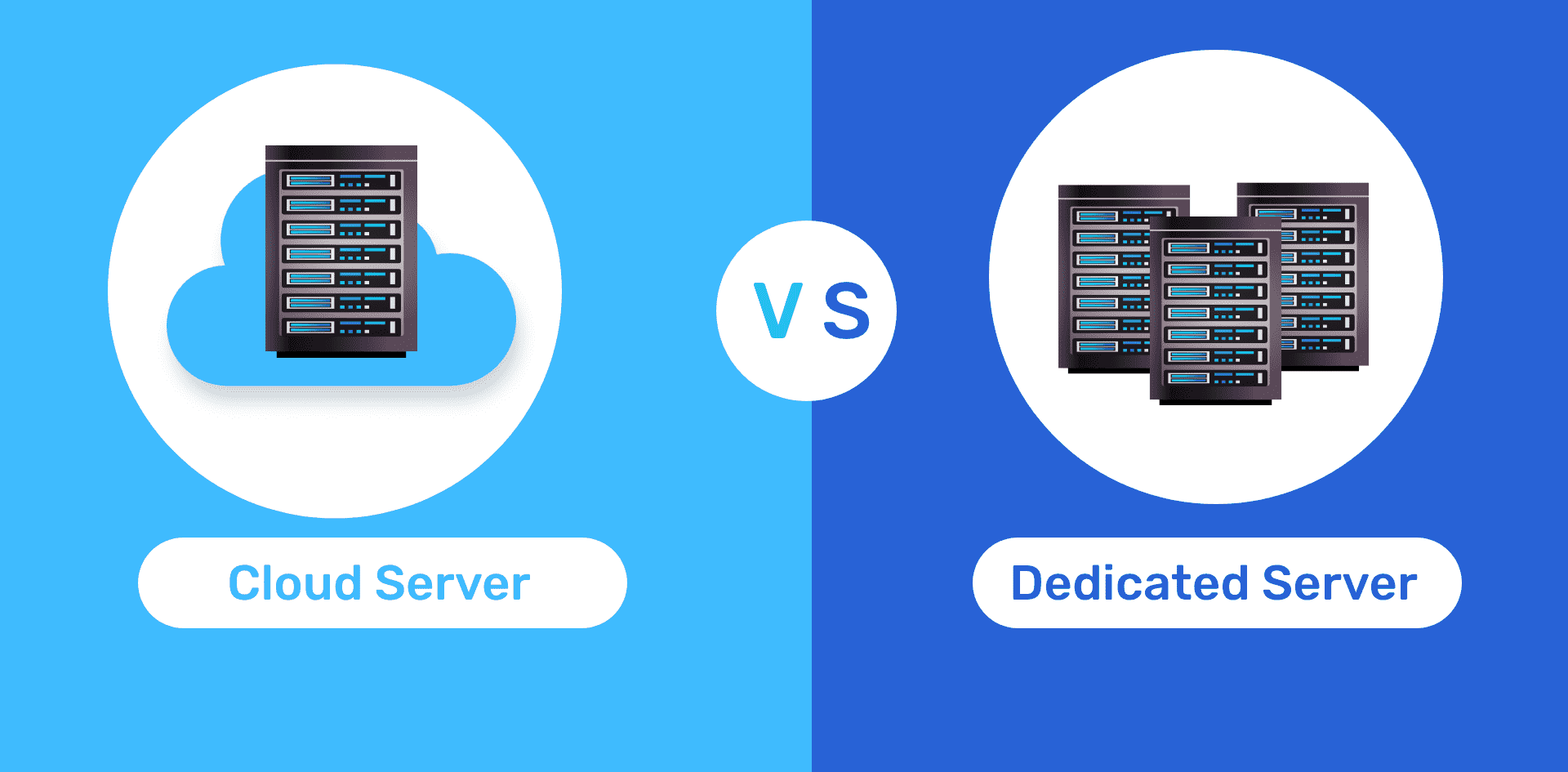In the world of web hosting, businesses often face the dilemma of choosing between a Cloud Virtual Private Server (VPS) and a Dedicated Server. Both options offer robust performance and control, but they cater to different needs and preferences. Understanding the key differences between Cloud VPS and Dedicated Servers can help you make an informed decision that aligns with your business requirements. Let’s break down the differences and benefits of each.
1. Definition and Basic Concepts
Cloud VPS: A Cloud VPS (Virtual Private Server) is a virtualized server environment that uses cloud technology to deliver resources. Unlike traditional VPS setups, a Cloud VPS leverages a network of physical servers (cloud infrastructure) to provide virtualized resources. This setup ensures high availability and scalability.
Dedicated Server: A Dedicated Server is a physical server dedicated entirely to a single user or organization. Unlike VPS, which shares physical hardware with other virtual servers, a Dedicated Server provides complete control over the entire server’s resources. This means you have full access to the hardware, including CPU, RAM, and storage.
2. Resource Allocation
Cloud VPS:
- Virtualized Resources: Resources are allocated from a pool of physical servers. This allows for flexible scaling based on demand.
- Scalability: Easily scale resources (CPU, RAM, storage) up or down without downtime. Ideal for fluctuating workloads.
Dedicated Server:
- Physical Resources: All server resources are dedicated to you and not shared with others.
- Fixed Resources: The resources are fixed based on the hardware configuration you choose. Scaling requires physical changes to the server, which may involve downtime.
3. Performance and Reliability
Cloud VPS:
- High Availability: Cloud VPS benefits from the redundancy of cloud infrastructure. If one physical server fails, another can take over, minimizing downtime.
- Variable Performance: Performance can be affected by the load on the cloud infrastructure. However, modern cloud environments provide robust performance management.
Dedicated Server:
- Consistent Performance: With a Dedicated Server, you have exclusive access to all resources, ensuring stable and predictable performance.
- Single Point of Failure: If the server fails, your services will be impacted until the issue is resolved. Backup solutions are crucial for minimizing downtime.
4. Management and Control
Cloud VPS:
- Managed vs. Unmanaged: Cloud VPS can be either managed or unmanaged. Managed services include support and maintenance, while unmanaged requires you to handle administration.
- Flexibility: Provides flexibility in managing resources and configurations through a user-friendly control panel.
Dedicated Server:
- Full Control: Offers complete control over the server’s configuration and management. You can install custom software, configure security settings, and optimize performance.
- Requires Expertise: Managing a Dedicated Server requires technical expertise. If you choose a managed Dedicated Server, the provider handles administration.
5. Cost
Cloud VPS:
- Pay-As-You-Go: Typically follows a pay-as-you-go pricing model. You pay for the resources you use, which can be cost-effective for variable workloads.
- Flexible Pricing: Costs can fluctuate based on usage and scaling needs.
Dedicated Server:
- Fixed Pricing: Generally comes with a fixed fee based on the server’s hardware configuration. This can be more predictable but may involve higher upfront costs.
- Higher Initial Costs: Typically more expensive than Cloud VPS, particularly for high-performance or specialized configurations.
6. Use Cases
Cloud VPS:
- Ideal For: Businesses with fluctuating workloads, startups, and applications requiring high availability and scalability.
- Examples: E-commerce sites with seasonal traffic spikes, development and testing environments, and applications with varying resource needs.
Dedicated Server:
- Ideal For: Organizations requiring high-performance computing, high security, and dedicated resources.
- Examples: Large-scale enterprise applications, high-traffic websites, and applications with consistent resource demands.
Conclusion
Choosing between a Cloud VPS and a Dedicated Server depends on your specific needs for scalability, performance, control, and cost. Cloud VPS offers flexibility and scalability, making it ideal for businesses with fluctuating demands. On the other hand, Dedicated Servers provide consistent performance and full control, suited for organizations with stable and intensive workloads. Assess your business requirements and choose the option that best aligns with your goals and resources.
For more personalized advice on selecting the right hosting solution, feel free to contact Vaircloud. We’re here to help you find the perfect fit for your business needs.





